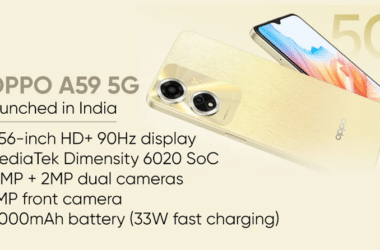Q2 Earnings Report: Tata Consultancy Services (TCS), Infosys, and HCL Tech
In the ever-evolving world of Information Technology, it’s imperative to stay updated with the latest developments and financial performances of major players in the industry. Q2 earnings reports often provide a snapshot of how IT companies are faring. This article delves into the Q2 earnings of three IT giants: Tata Consultancy Services (TCS), Infosys, and HCL Technologies (HCL Tech). These companies have recently showcased positive results in terms of margins and deal wins. However, there are also certain setbacks to consider.
Tata Consultancy Services (TCS)
TCS, one of India’s largest IT services companies, posted an impressive EBIT (Earnings Before Interest and Taxes) margin of 24.3% in the Q2 earnings report. This indicates robust profitability, and it’s higher than many industry experts had estimated.
Infosys
Infosys, another IT powerhouse, reported an EBIT margin of 21.2% in the same quarter. This too surpasses expectations, reflecting the company’s strong financial performance.
HCL Technologies (HCL Tech)
HCL Tech, known for its diversified IT services, showed an EBIT margin of 18.5% in the Q2 earnings report. While not as high as TCS and Infosys, it’s still a commendable performance.
Discretionary Demand Setback
However, amidst these positive margins, there’s been a notable setback in discretionary demand across the industry. Discretionary demand refers to non-essential IT spending, often linked to projects and innovation. The pandemic has impacted discretionary demand, leading to slower decision-making and reduced volumes. This has affected all three companies.
Strategies for Maintaining Margins
In response to the challenges posed by the pandemic, these IT giants have adopted various strategies to maintain their profit margins. These strategies include increasing utilization rates, implementing productivity measures, reducing resource costs, cutting sub-contract costs, and effectively managing Selling, General, and Administrative Expenses (SG&A). These measures have contributed to the impressive EBIT margins reported.
Margin Expansion Expectations
Industry analysts are optimistic about the future. They anticipate a margin expansion of 60-110 basis points over FY2024-26E for TCS, Infosys, and HCL Tech. This positive outlook is based on the companies’ ability to continue implementing cost-saving measures.
Record-High Total Contract Value (TCV)
One of the standout achievements in the Q2 earnings reports is the record-high Total Contract Value (TCV) of deal wins. The IT industry has observed substantial TCV growth driven by clients’ cost optimization initiatives.
HCL Tech’s Remarkable TCV
HCL Tech reported an impressive TCV of new deal wins, worth $3.97 billion, marking a remarkable 65% year-on-year increase. The company anticipates further growth in the coming quarters.
Infosys’ Record Deal Wins
Infosys also achieved a noteworthy milestone with record deal wins worth $7.7 billion, signifying an outstanding 180% year-on-year growth.
TCS’s Deal Wins
TCS reported deal wins worth $11.2 billion, showing a substantial 38.3% year-on-year increase. This includes two substantial deals with BSNL and JLR, each valued at $1 billion.
Significance of Deal Wins
The increase in deal wins is not only a positive sign for these companies but also bodes well for the broader IT industry. These deals have longer tenures, and vendors aim to cover upfront investments, making them particularly attractive in challenging environments.
Key Advantage for the Big Three
TCS, Infosys, and HCL Tech have a significant advantage in this arena due to their scale and the ability to offer a wide range of services. This makes them well-equipped to secure and deliver on large, complex deals.
Infosys’ Revenue Guidance
Despite these achievements, Infosys did have to revise its revenue guidance. They adjusted it from a year-on-year growth estimate of 1.0-3.5% to 1-2.5%. This is primarily due to weaker discretionary demand, which has led to lower volumes and slower decision-making by clients.
Challenges Ahead
The stabilization and improvement of discretionary spending are crucial for these IT giants to meet their revenue growth estimates of 8-10% in constant currency by FY2025. Signs of this improvement are expected to become visible in the first quarter of the 2024 calendar year.
Conclusion
In conclusion, the Q2 earnings reports of Tata Consultancy Services (TCS), Infosys, and HCL Technologies (HCL Tech) are impressive, reflecting their resilience and ability to navigate challenging environments. While discretionary demand remains a concern, the future holds promise with margin expansion expectations and the continued growth of Total Contract Value (TCV) deals. The IT industry is evolving, and these companies are well-positioned to adapt and thrive.
FAQs
What is discretionary demand in the context of IT services companies?
Discretionary demand refers to non-essential IT spending, often related to projects and innovation. It is spending that can be deferred or adjusted based on business needs and priorities.
How did TCS, Infosys, and HCL Tech manage to maintain high profit margins in Q2?
These companies employed various strategies, including increasing utilization rates, implementing productivity measures, reducing resource costs, cutting sub-contract costs, and effectively managing Selling, General, and Administrative Expenses (SG&A).
Why is the increase in Total Contract Value (TCV) deal wins significant for these IT companies?
Increased TCV deal wins are indicative of strong business growth and reflect clients’ cost optimization initiatives. Such deals often have longer tenures, making them attractive for vendors.
How has Infosys adjusted its revenue guidance, and why?
Infosys revised its revenue guidance from a year-on-year growth estimate of 1.0-3.5% to 1-2.5% due to weaker discretionary demand, resulting in lower volumes and slower decision-making by clients.
When can we expect improvements in discretionary spending in the IT industry?
Analysts suggest that the earliest signs of improvement in discretionary spending will likely be visible in the first quarter of the 2024 calendar year.









